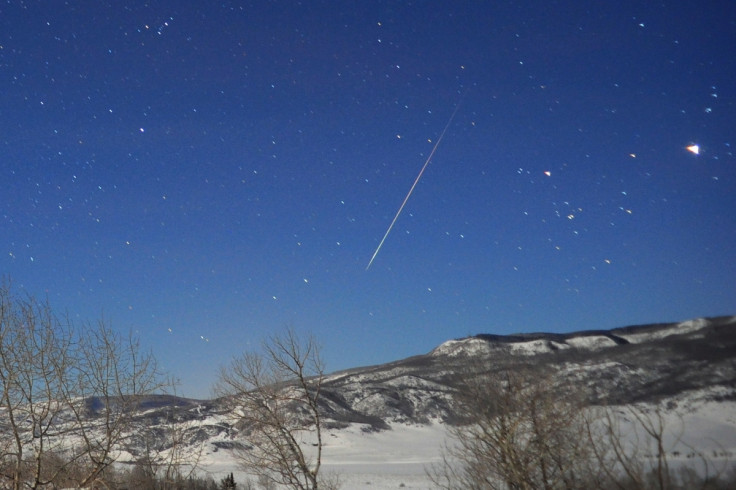Delta Aquarids & Alpha Capricornids 2014: Two Meteor Showers to Peak in Coming Days

Two meteor showers are set to light up the night skies over the coming week, with the Delta Aquarids and Alpha Capricornids expected to peak on 28 and 29 July.
The Delta Aquarids – also known as the Delta Aquariids – will be particularly good for watching this year because of the new moon on 26 July, Earthsky said.
This is because when the moon is not visible, between 15 and 20 meteors should be visible per hour. They travel at around 41km per second 100km above the Earth's surface.
While the Delta Aquarids are better viewed from the Southern Hemisphere, they are visible in both. They are active between 21 July and 23 August, with the best dates to try to catch them between 25 and 29 July.
The meteor shower gets its name because their radiant appears to lie in the constellation Aquarius, near one of the brightest stars, the Delta Aquarii. It is one of the notable showers of the year because of how bright the fireballs it produces are.
Around 10% of the Delta Aquarid meteors leave persistent glowing trains that last for a few seconds after the meteor passes. Meteors come from broken asteroids and this shower is believed to originate from the comet 96P/Machholz.
"The parent body of the Delta Aquarid meteor is not known with certainty. It was once thought to have originated from the breakup of what are now the Marsden and Kracht sungrazing comets," Earthsky said. "More recently, the Comet 96P Machholz has loomed as the primary candidate for being the Delta Aquarids' parent body."
Over the coming days, the Alpha Capricornids should also be visible, with the shower having started about 15 July and lasting until 10 August. It is expected to peak on 29 July.
The Alpha Capricornids were discovered by the Hungarian astronomer Miklos von Konkoly-Thege in 1871 and originate from the comet 169P/NEAT.
The shower is thought to have been created up to 5,000 years ago when half of the comet's parent body fell into dust.
It is much smaller than the Delta Aquarids, with about two to five meteors per hour, but has a reputation of producing some of the brightest meteors of all the major showers.
Alpha Capricornids are also expected to become a major annual meteor shower by 2220, and will be "stronger than any current annual shower", researchers said in 2010.
© Copyright IBTimes 2024. All rights reserved.






